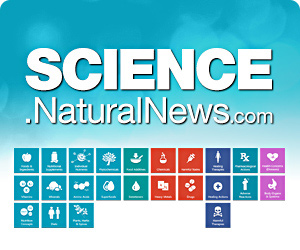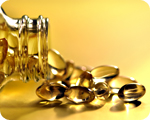
(Natural News) People looking to buy their favorite foods at grocery stores could also be getting “worrisome” chemicals on the side, according to food-test results released by the Food and Drug Administration. In the report, the regulators discovered that grocery store meats and seafood, and off-the-shelf chocolate cake contained substantial levels of per- and polyfluoroalkyl substances, or PFAS. Nearly half of the meat and fish had levels twice or over the current recommendations for the man-made compounds, while chocolate cakes had more than 250 times the federal guidelines.
But the FDA itself downplayed the findings, saying that the levels found were “not likely to be a human health concern.” The agency also insisted that there isn’t enough evidence to link PFAS levels found in grocery items and elevated levels found in people’s blood. A recent federal toxicology report had similar results, citing links between elevated PFAS levels in the bloodstream and health problems, but stopped short of pinning the compounds as the cause.
A chemical that takes forever to get rid of
Per- and poly-fluoroalkyl substances are synthetic chemicals found in many everyday products, such as stain-resistant clothing and fabrics, food packaging, firefighting foam – even dental floss. First developed by DuPont in 1938 and used in nonstick cookware, there are now nearly 5,000 varieties of PFAS. Industries like the military and aerospace also use the compounds, and the Department of Defense calls them irreplaceable in suppressing jet-fuel fires.
For all their benefits, the use of PFAS remains controversial, and for good reason. These chemicals have been the subject of recent congressional hearings and state legislation, as more studies reveal the dangers of PFAS for both human health and the environment. The FDA, for its part, considers the risks posed by PFAS contamination in food “case by case” – despite studies that link it to cancer, dyslipidemia and neurotoxicity. (Related: PFAs, chemicals commonly found in household and everyday items, found to interfere with metabolism and body weight.)
The power of the elements: Discover Colloidal Silver Mouthwash with quality, natural ingredients like Sangre de Drago sap, black walnut hulls, menthol crystals and more. Zero artificial sweeteners, colors or alcohol. Learn more at the Health Ranger Store and help support this news site.
PFAS molecules, in addition, are mainly made of carbon-fluoride bonds, one of the strongest in organic chemistry. The bond is so strong that scientists are unable to estimate PFAS’ environmental half-life, or the amount of time it takes for the chemical to fall half of its initial value. This makes communities around military bases and PFAS facilities highly vulnerable, with reports indicating water with levels “hundreds, sometimes thousands, of times higher” than federal guidelines. The chemicals are also found in sewage sludge and even soil around the area.
Your favorite foods, with a side of unwanted chemicals
For the FDA study, researchers sampled market-basket items bought in mid-Atlantic cities and tested them for PFAS.
Perfluorooctanesulfonic acid (PFOS), a legacy PFAS that has been phased out of production in the US, was still detected in meats (lamb and beef), poultry (chicken and turkey), fish and seafood (tilapia, salmon, catfish and cod) and even hotdogs. Another kind of PFAS called PFPeA was present in chocolate cake tested by the regulators. In addition, they found that leafy green vegetables grown 10 miles of a PFAS plant still contained elevated levels of the chemical.
In a statement, the Environmental Protection Agency has said that it will consider a mandatory regulation for PFAS after tests revealed contamination in water systems, with the administration calling it a “national priority.”
“I know there are people who would like us to move faster,” explained EPA Administrator Andrew Wheeler. “We are addressing this much faster than the agency has ever done for a chemical like this.”
Sources include:
















